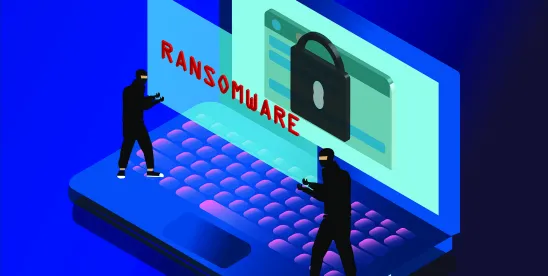Unfortunately, I’ve had unpleasant dealings with the Phobos ransomware group. My interactions with Phobos have been fodder for a good story when I educate client employees on recent cyber-attacks to prevent them from becoming victims. The story highlights how these ransomware groups, including Phobos, are sophisticated criminal organizations with managerial hierarchy. They use common slang in their communications and have to get “authority” to negotiate a ransom. It’s a strange world.
Because of my unpleasant dealings with Phobos, I was particularly pleased to see that the Department of Justice (DOJ) recently announced the arrest and extradition of Russian national Evgenii Ptitsyn on charges that he administered the Phobos ransomware variant.
This week, the DOJ unsealed charges against two more Russian nationals, Roman Berezhnoy and Egor Nikolaevich Glebov, who “operated a cybercrime group using the Phobos ransomware that victimized more than 1,000 public and private entities in the United States and around the world and received over $16 million in ransom payments.” They were arrested “as part of a coordinated international disruption of their organization, which includes additional arrests and the technical disruption of the group’s computer infrastructure.” I’m thrilled about this win. People always ask me whether these cyber criminals get caught. Yes, they do. This is proof of how important the Federal Bureau of Investigation (FBI) is in assisting with international cybercrime, and how effective its partnership with international law enforcement is in catching these pernicious criminals. This is why I firmly believe that we must continue to share information with the FBI to assist with investigations, and why the FBI must be allowed to continue its important work to protect U.S. businesses from cybercrime.



 />i
/>i

